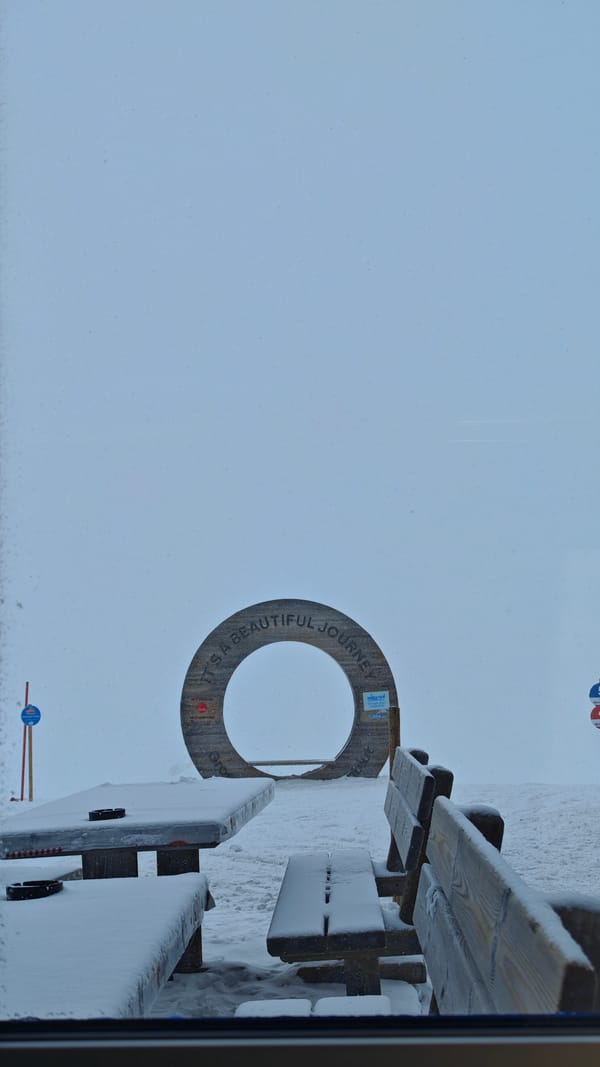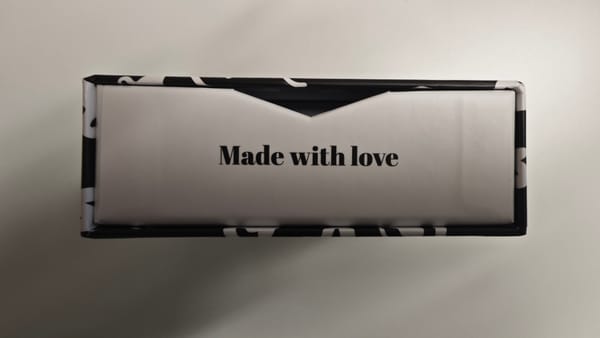Week 09/2025
Manchmal wird's ja auch einfach so wieder schön
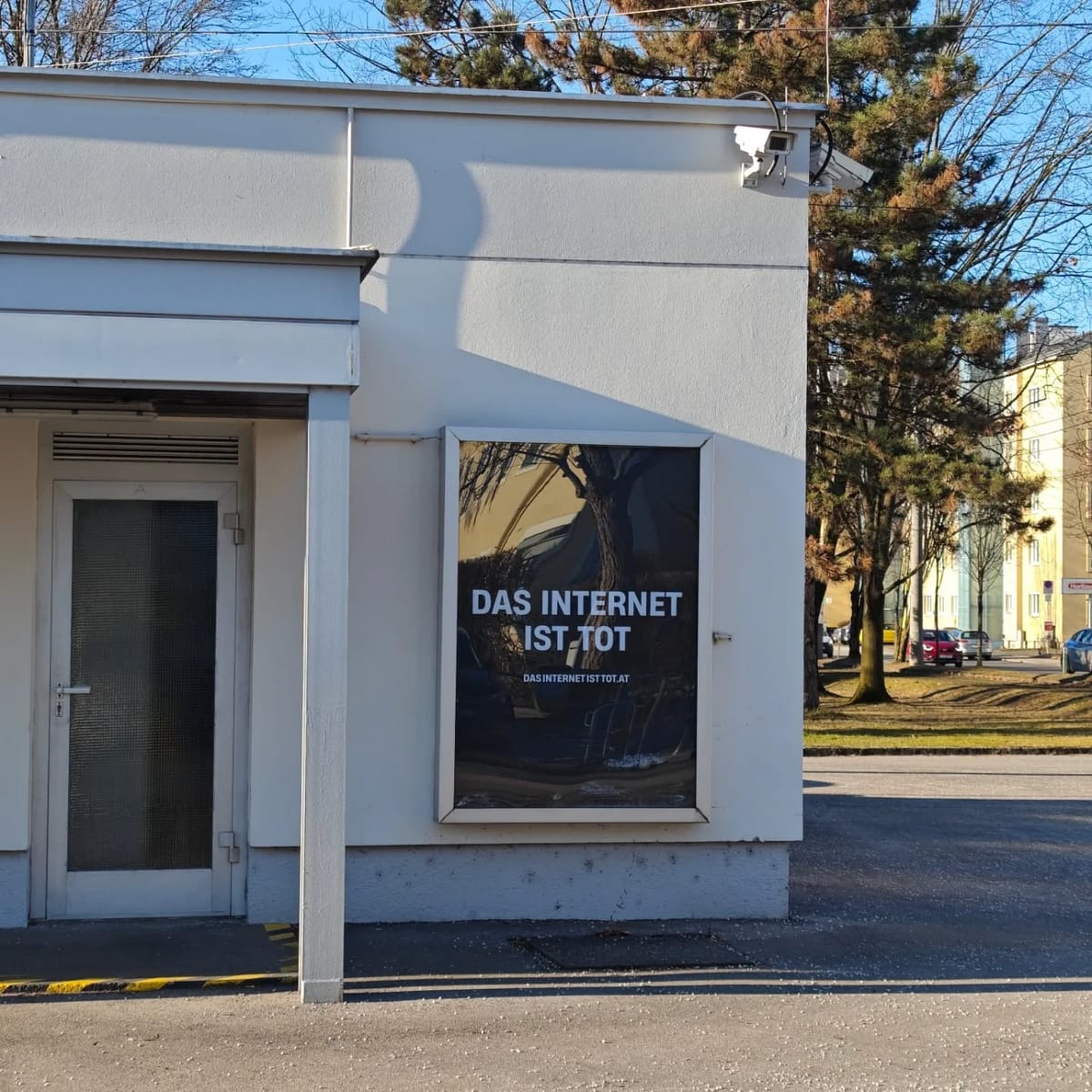
Trouvaille in Linz. Finally.
NSFW
This week’s song is another comment to the ongoing carneval and ball season and its politics. This time, it a valse, sung by Paul Sies.
YouTube:
The next very remarkable song on the same album
makes reference to this 40 years old all time classic from Rio Reiser :
Retrospect
Villach
The terrible attack in Villach triggered a lot of media attention. Some aspects of the debate touch my expertise such as platform liability, law enforcement on the internet and messanger surveillance. This is why I was in Mittagsjournal, in ZIB and (presumably, I gave an interview but couldn’t find it anywhere) in Puls24 News on this and also summarized my learnings in two Linked-In posts (one, two).
I have three main points in this debate:
First, following the “Never miss a good crisis”-mantra, old political symbolic gestures presumably intended to “magically” make the world a safer place, are immediatly presented by politicians in such moments - although they would have been completly useless in this and similar cases.

Interestingly, also Florian Klenk has a rather ‘harsh’ opinion here.

joined by (in this case: green) politicians as well:
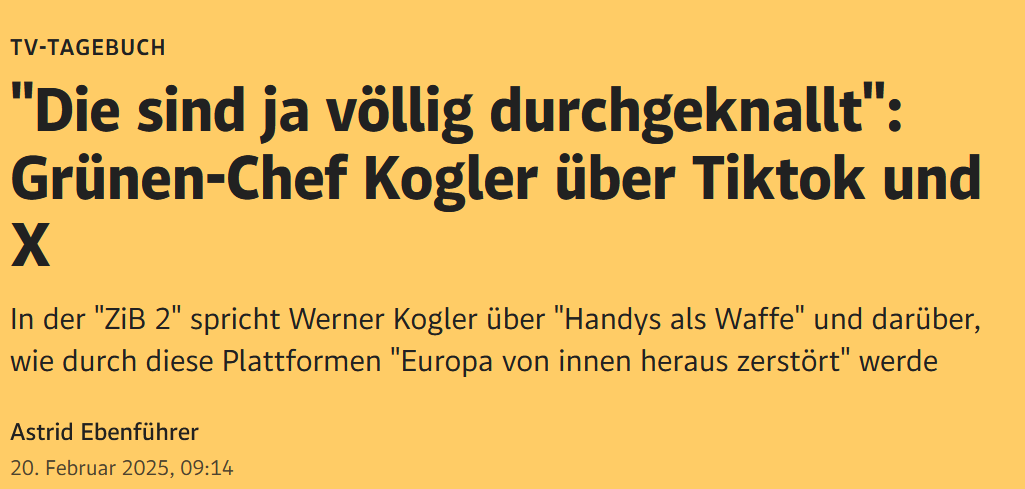
(The matter whether Austria could and should turn TikTok offline (Spoiler: no) will be the topic of a scheduled TV-interview with me on Friday morning. I will need to do this remotely for scheduling reasons. So, if you are reading this early and want to see the laundry in ORF III Aktuell, tune in at 10.00 am.)
Second, it’s important to understand what “free speech” in the current understanding of the Trump-administration means and which impact this has on the European attempts to govern US-companies. I am stunned that this doesn’t trigger the European attention it deserves (in my view), as there is (almost) nothing but US companies in this market.
I highly recommend to watch the presentation of Vice President Vance, delivered in Munich last week, in full length. It’s just 20 minutes long, but it’s a tough mixture of hybris, arrogance, extremism and rudeness, presented in a rhetorically brilliant way and with no counterspeech. There’s already an extensive Wikipedia-article on it.
It’s very diappointing that none of Austria’s ministers in charge (chancelor, foreign affairs, interior, media, justice, to name a few) found the time to give an interview on this - and the head of Austria’s intelligence service neither. The few things I heard are the usual unreflected mixtures of unrelated talking points on the miraculaous measures needed to magically make the world a safer place that I mentioned above.
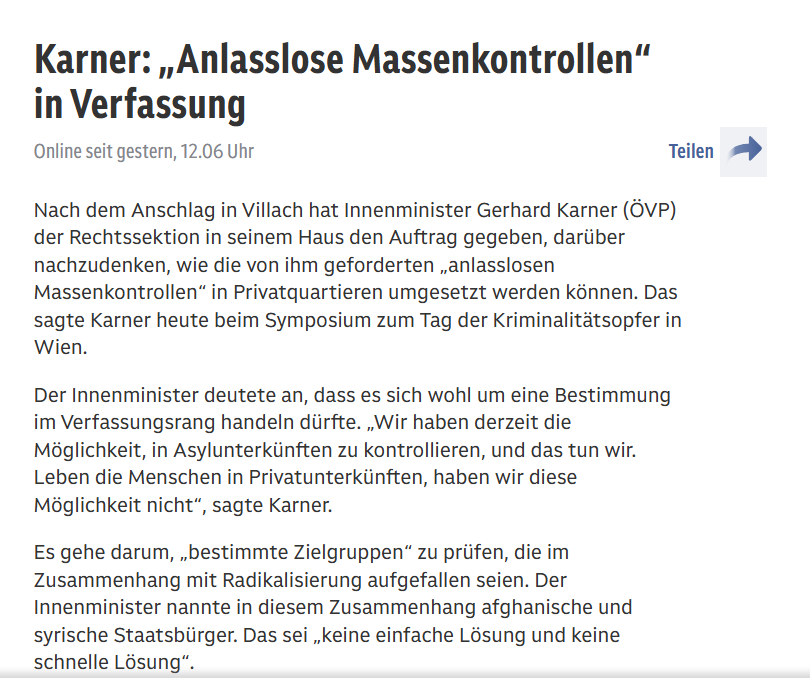
Third, art. 34 and 35 DSA are really poorly written and are precisely the problem expected in the drafting process.
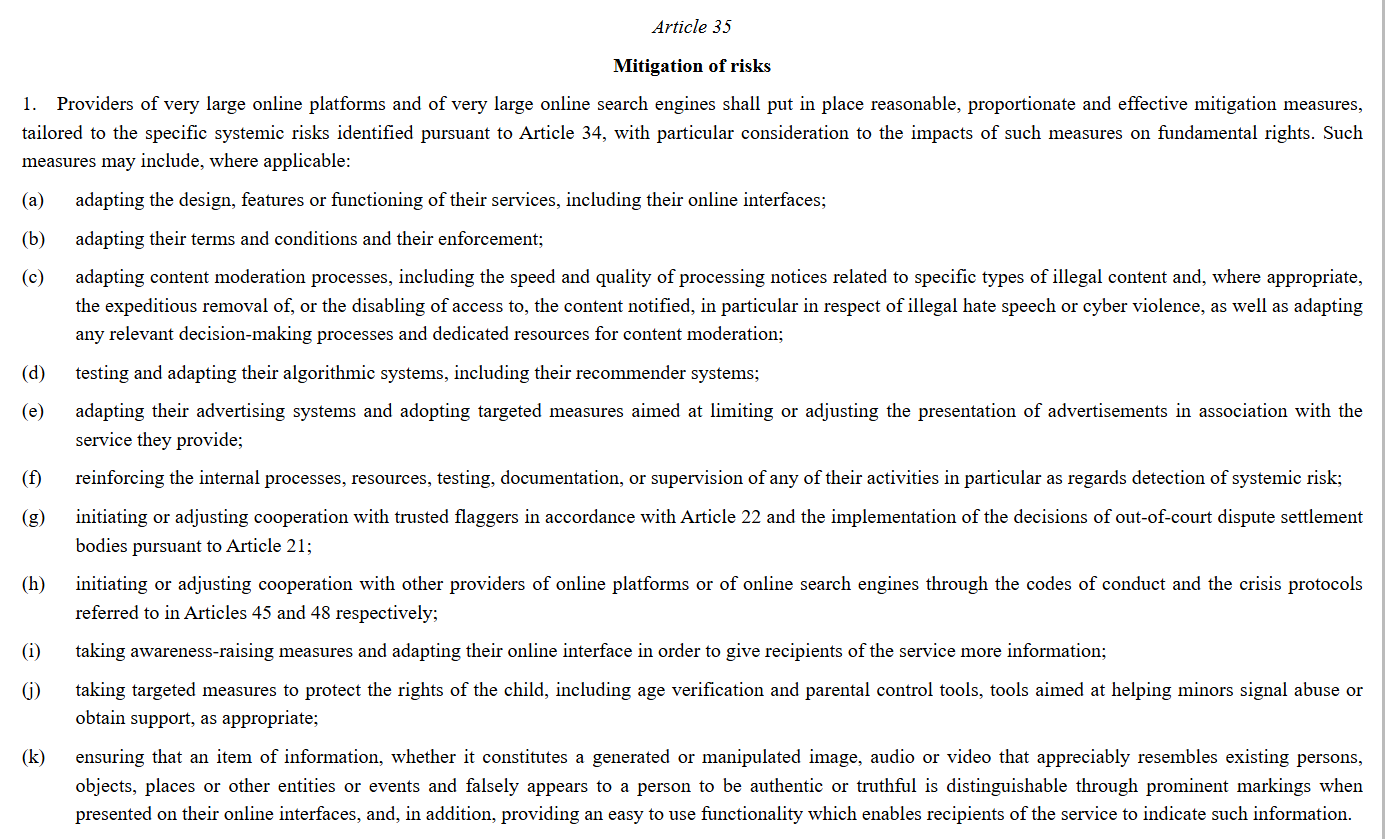
Not only because it’s very hard to tell, what, precisely, systemic risks and mitigation measures really should be, but also because of their terribly vague wording and the room for manouvre they offer. The idea that (US owned) very large online platforms would simply ‘understand’ what is requested and would follow the Commission’s guidance in due time, is, unfortunately, as naive as constantly said by pessimists like me long, long before Trump came into office and long before Villach.
See, for example, this unbelievable Musk-Tweet from August 2024 in reply to one of the many “funny” tweets from Thierry Breton.
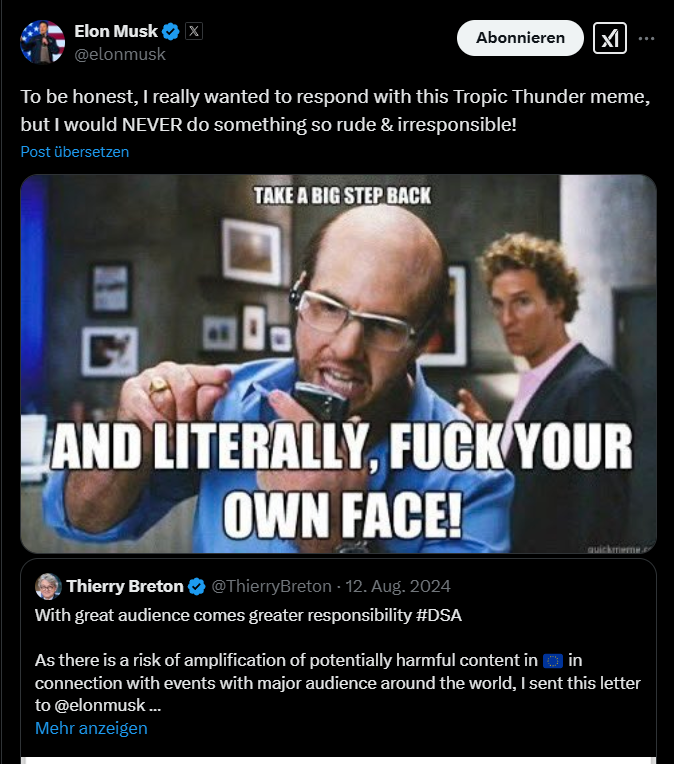
Breton is also (indirectly) mentioned in Vance’s speech, presumably because of this.
The problem, however, is more fundamental than just poorly written law. It is - still - unclear, what, exactly, the European legislators really should want to achieve here. Customers want personalized content, the very reason why TikTok is so popular is the efficiency of their algorithm in this respect. Unwanted content is unwanted by a majority (or an elite minority?) but not necessarily illegal. So, what should a platform do but delivering unwanted content to customers wishing to see that? And what, exactly, should customers need to be transparently informed about here and what does a yearly/monthly/weekly report that can, on top, be customized in any way the platform wants, change here? Everyone searching for content of flatearthers is very much aware that most people know the earth is not flat and still wants to be convinced (and often is convinced) that everybody argueing that the earth is, actually, not flat, is wrong.
The problem is much more fundamental and has to do with our education systems, trust in the political system and in media and in strategic interests of Non-EU-players and can’t simply be delegated to platforms representing a symptom but not the disease as such.
Some of the frustrating experiences with all the DSA transparency and reporting instruments that don’t work (yet?) can be seen here.
#arsboni
All three sessions of last week came with a lot of insight and inspiration. Björn Steinrötter presented a kind of third birth of legal informatics as academic discipline.
Guillaume Chassagnon rightly highlighted that AI usage in radiology comes with more data storage which means better case documentation which means higher liability risks in unclear cases which means reluctance of staff to implement AI into the treatment cycle.
Veronika Hofinger discussed a very similar issue in the (Austrian) prison system where digitalisation is not always welcomed by staff either and where Austria is lacking behind for various (also budgetary) reasons. The digital prison, as she argued, can be seen as a dystopian projection of the future, but also as an opportunity to make prisoners’ reintagration more likely.
AI and University Education
I attended and spoke at a conference on AI and University education in Bochum. The campus of Ruhr University Bochum is, as I learned, listed as a protected place which doesn’t mean that it doesn’t lack a few millions of renovation investments desperatly needed.
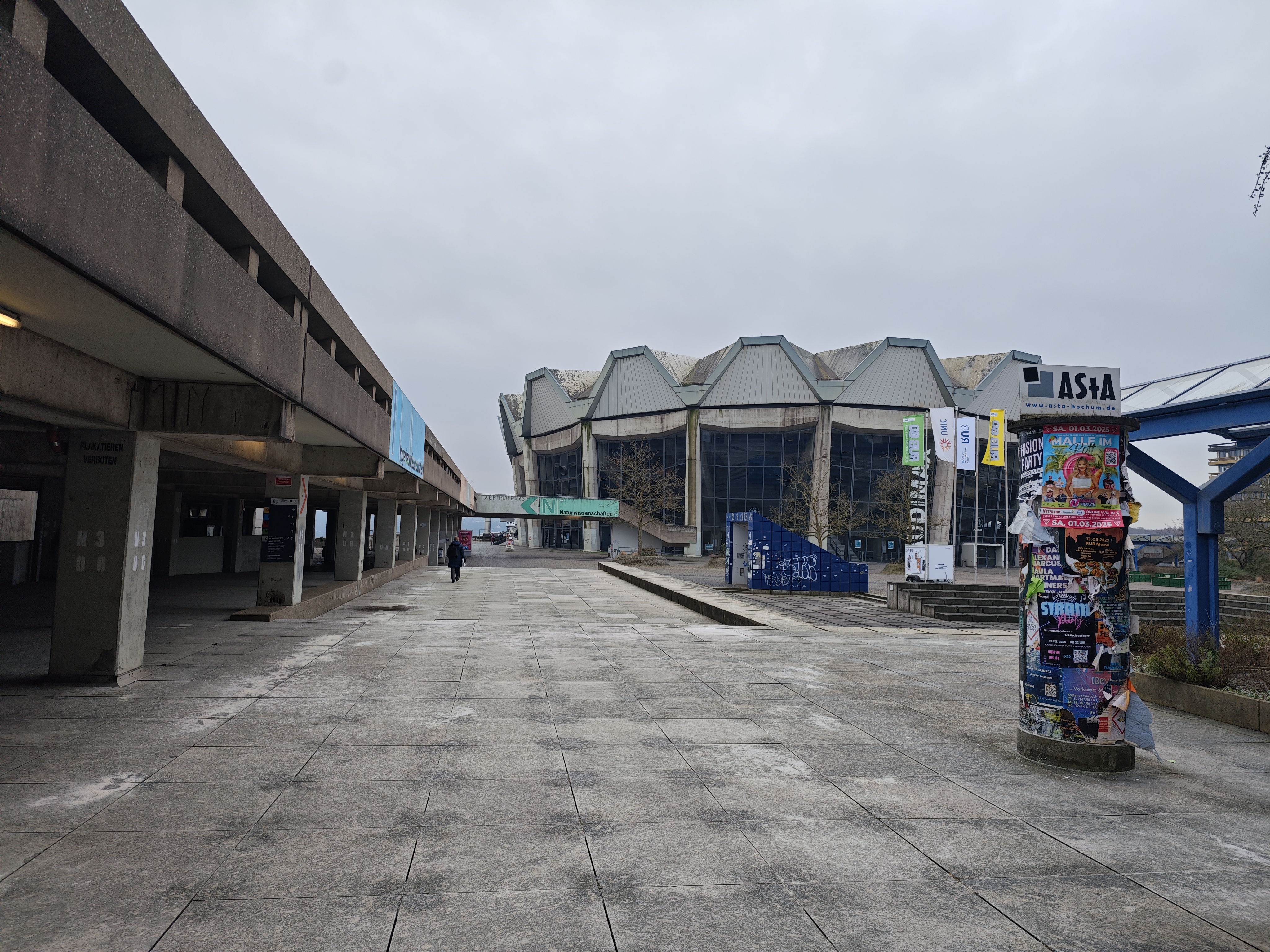
(Digital) infrastructure was, again, diappointing. It’s impossible to find accurate train connections correctly described in Google maps, internet bandwith is like in 2005 etc.
Here are 2 generic screenshots on the situation, one from public wifi at Düsseldorf airport, one from my 4 star hotel

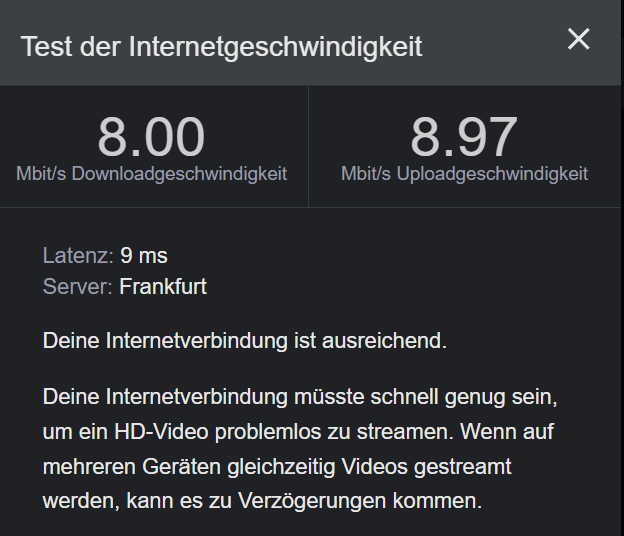
But the conference and its presentations were worth the trip. I liked, in particular, this quote presented by Prof. Dr. Torsten Zesch in a very nice presentation
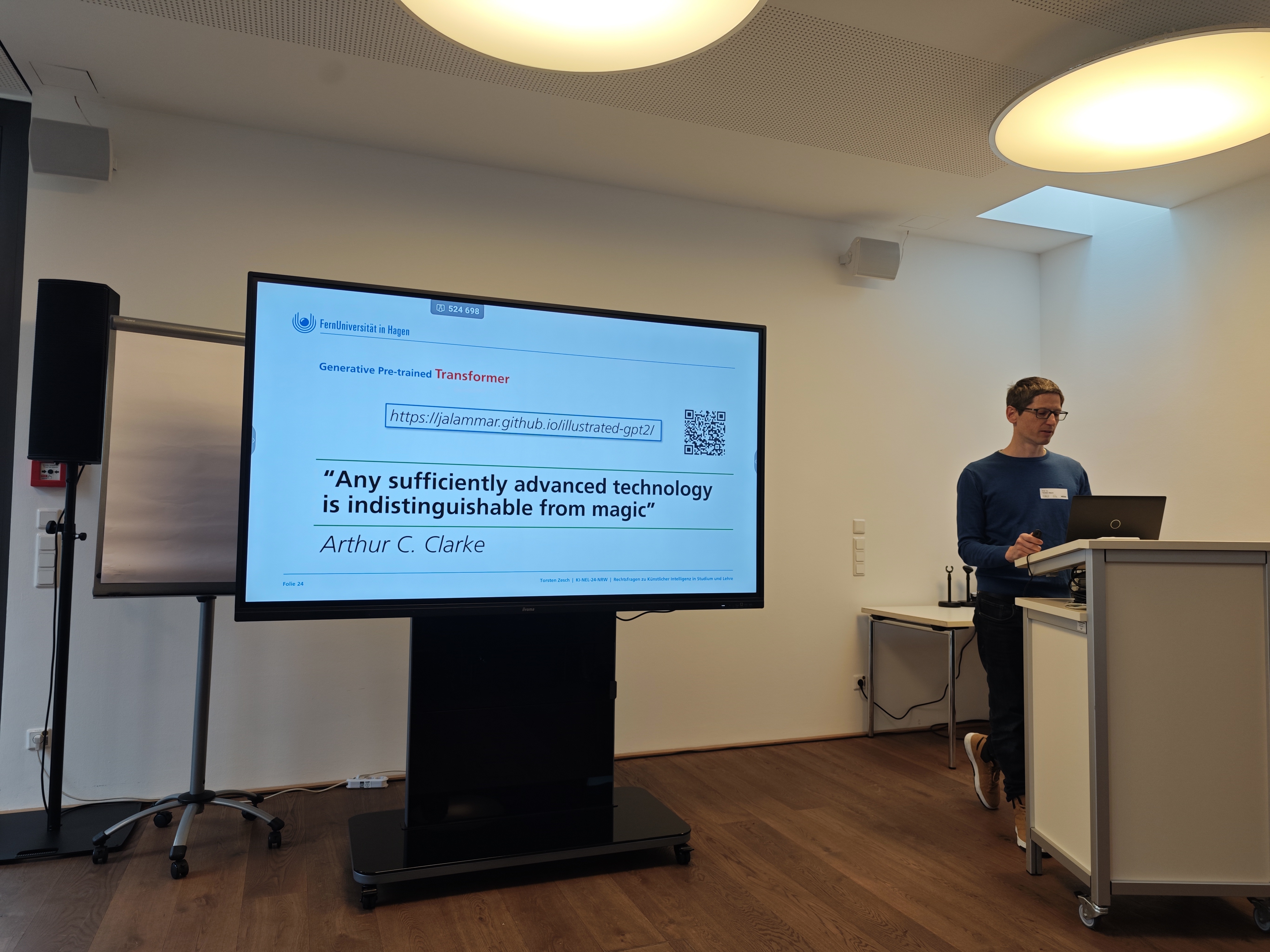
and all talks given, including those on legal requirements of exams and learning analytics by Dr. Sarah Rachut and Dr. Maxi Nebel.
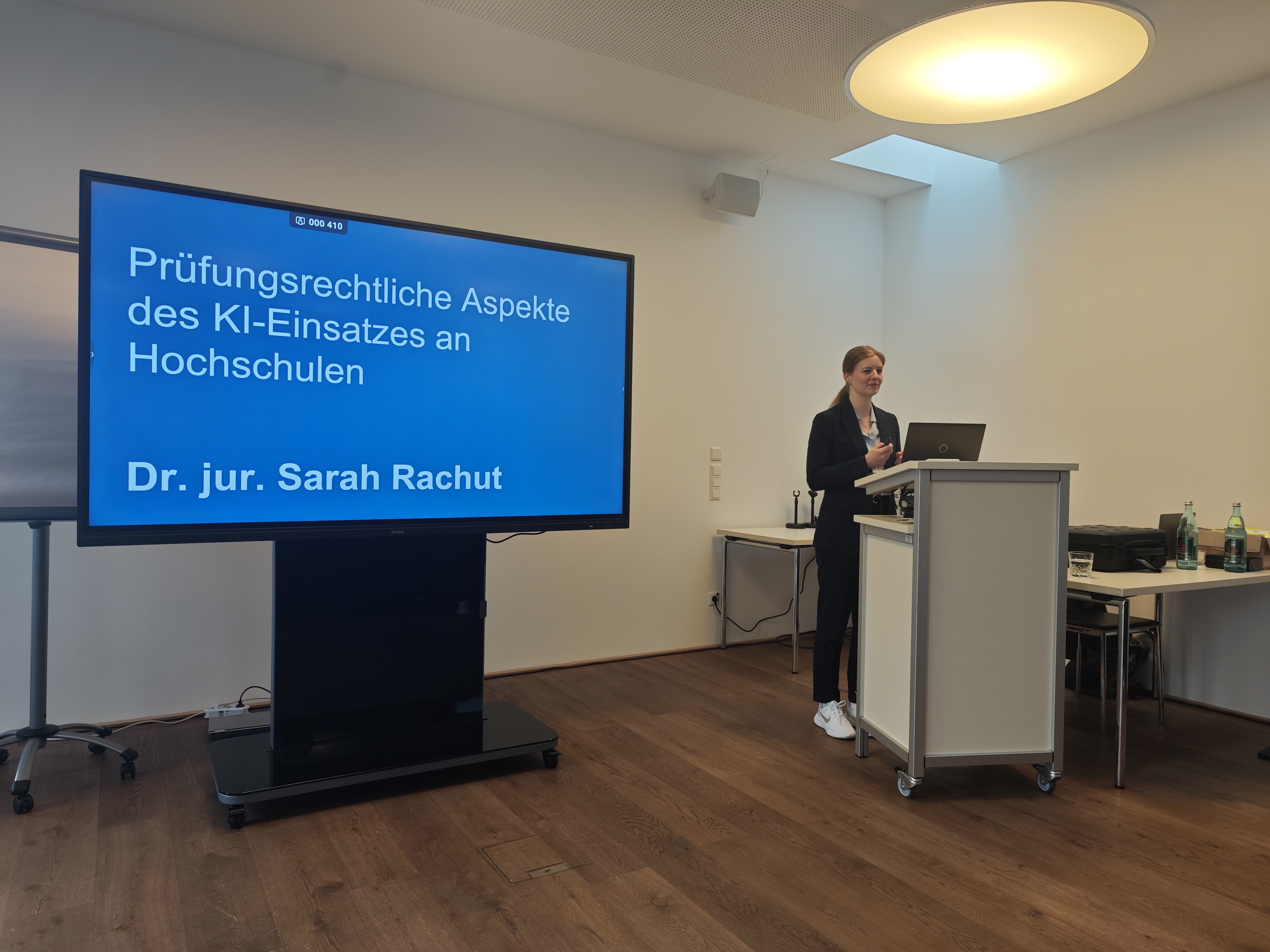
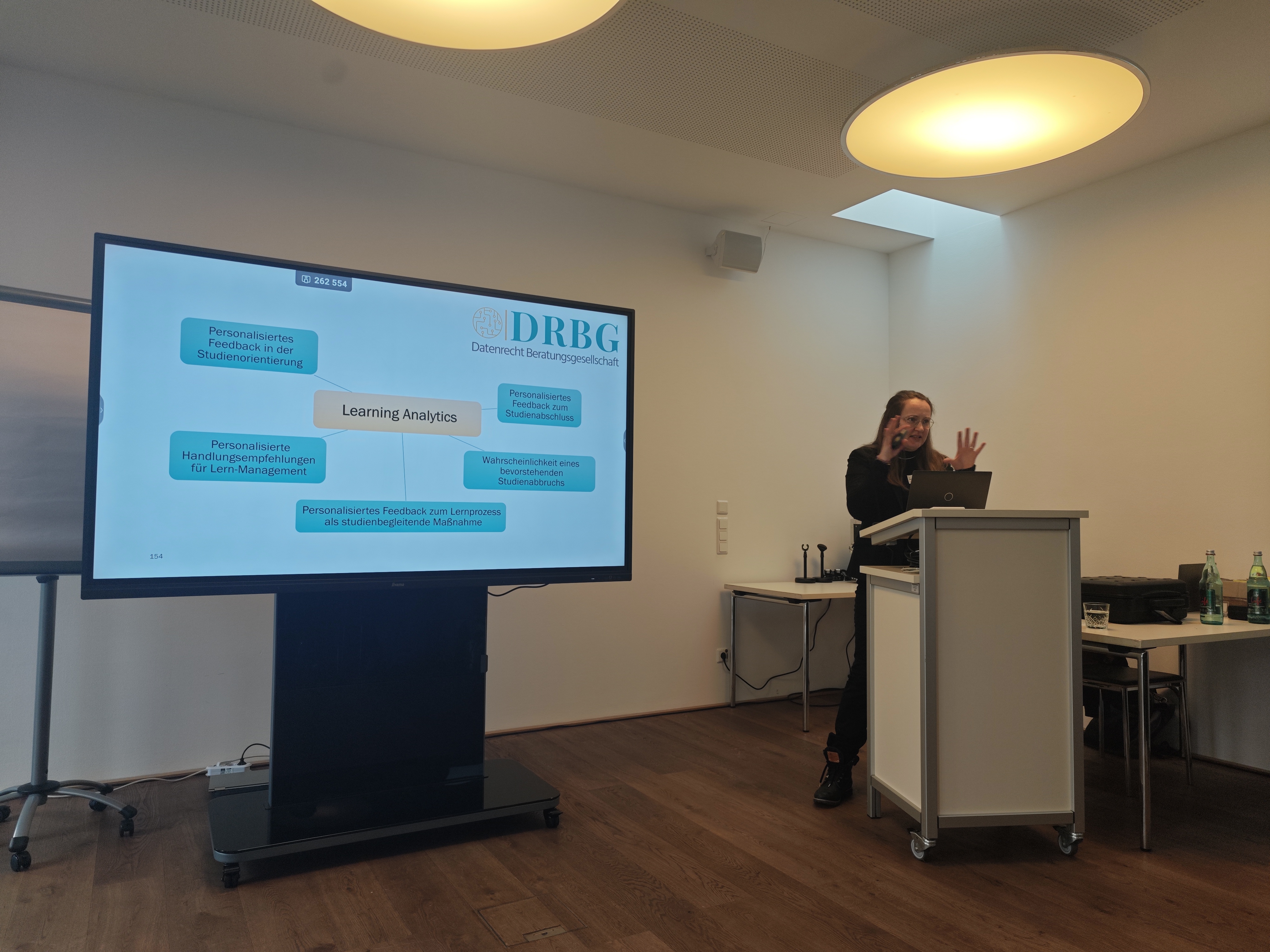
One anecdote worth to remember came from a data protection officer (proudly?) telling me in a coffee break that his University now - finally - has a regulation on learning analytics in place but - surprise, surprise - no IT-system to use for this purpose and no clear plans to use such a not yet existing system in the next years coming either.
Prospect
Conferences and Streams
We are going to have two major events tish week, and both will be streamed (in parts):
New era for health data: Secondary use of data in the EHDS and DGA and its implementation in Europe and Austria
27th February 2025, Campus, AULA
13:45 Arrival
14:00 Welcome
14:15 Panel discussion: "Europe and Austria in the midst of new data-related regulations. Status quo and the future of the EHDS and DGA implementation and its impact on secondary health data use"
15:45 Coffee break & transfer to workshop rooms
16:15 Three Workshops:
- Secondary Use of Data under the EHDS and Biobanking – What Is the Role and Impact of Broad Consent? The Austrian Case (BBMRI.at)
- Data Altruism – Secondary Use of Health Data in the Public Interest based on the example of the Austrian Health Data Donation Space (Smart FOX)
- EHDS in (university) hospitals – An interdisciplinary discussion (CD Labor)
17:30 Reunion of the participants
17:45 Discussion on the outcomes of the workshops and closing remarks
18:15Fingerfood & Networking
Stream:
Untangling the EU Artificial Intelligence Act: AI Literacy and Governance
Key infos:
- Date: Friday, 28. February 2025, 14.00-17:30
- Location: Top floor of the Juridicum, University of Vienna, Schottenbastei 10-16, 1010 Vienna
- Registration: Attendance is free of charge but registration is required. Please register here.
Programme
- 14:00: Welcome/Opening remarks by
Univ.-Prof. Dr. Nikolaus Forgó
Head of the Department of Innovation and Digitalisation in Law of the University of Vienna - 14:15-15:30: Part I - AI Governance
Keynote by
Dr. Klaus Steinmaurer
Executive Director at the Telecommunications and Postal Services at Rundfunk und Telekom Regulierungs-GmbH, Vienna
followed by a panel, moderated by
Clara Saillant, LL.M.
Research Associate
Department of Innovation and Digitalisation in Law of the University of Vienna
with contributions from
Univ.-Prof. Dr. Christiane Wendehorst, LL.M. (Cantab.)
Professor of Civil Law, Deputy Head of the Department of Innovation and Digitalisation in Law of the University of Vienna
Scientific Director of the European Law Institute
MMag. Elisabeth Wagner
Deputy Commissioner of the Austrian Data Protection Authority
Prof. Dr. Peggy Valcke
Co-Director of Centre for IT & IP Law at KU Leuven,
Executive Board Member at theBelgian Institute for Postal Services and Telecommunications
followed by
Discussion and Q&A
15:30-15:45: Coffee break
15:45-17:15: Part II - AI Literacy
Keynote by
Dr. Elora Fernandez (remote)
Postdoctoral Researcher at Centre for IT & IP Law at KU Leuven
followed by a panel, moderated by
Univ.-Ass. Mag. Adriana Winkelmeier
Department of Innovation and Digitalisation in Law of the University of Vienna
with contributions from
Ceyhun Necati Pehlivan, LL.M.
Counsel and Head of Technology, Media Telecommunications and Intellectual Property Group at Linklaters, Madrid
Editor-in-chief of Global Privacy Law Review at Wolters Kluwer
Dr. Jeanette Gorzala
Vice Chair, AI Board of the Austrian Government
Founder, ACT AI NOW
Dr. Lukas Feiler
Partner at Baker McKenzie, Vienna
Dr. Sonja Dürager, LL.M.
Partner at bpv Hügel, Salzburg
followed by
Discussion and Q&A
17:15: Closing remarks
17:30: End of event - Reception
If you can’t make it on site, here is the stream:
Look and Feel
Trump, Ukraine and Europe
May I reommend this outstandingly fundamental and brilliant and smart conversation between Ivan Krastev and Timothy Snyder and may I highlight how unbelievably privileged we are in Vienna that such events happen here.
It’s a very insightful call to action for the EU, tackling, inter alia, Trump, Musk, Ukraine and Russia.
Music
In difficult times, music helps.
Khatia Buniatishvili gave a very impressive concert in Konzerthaus (on a Steinway).
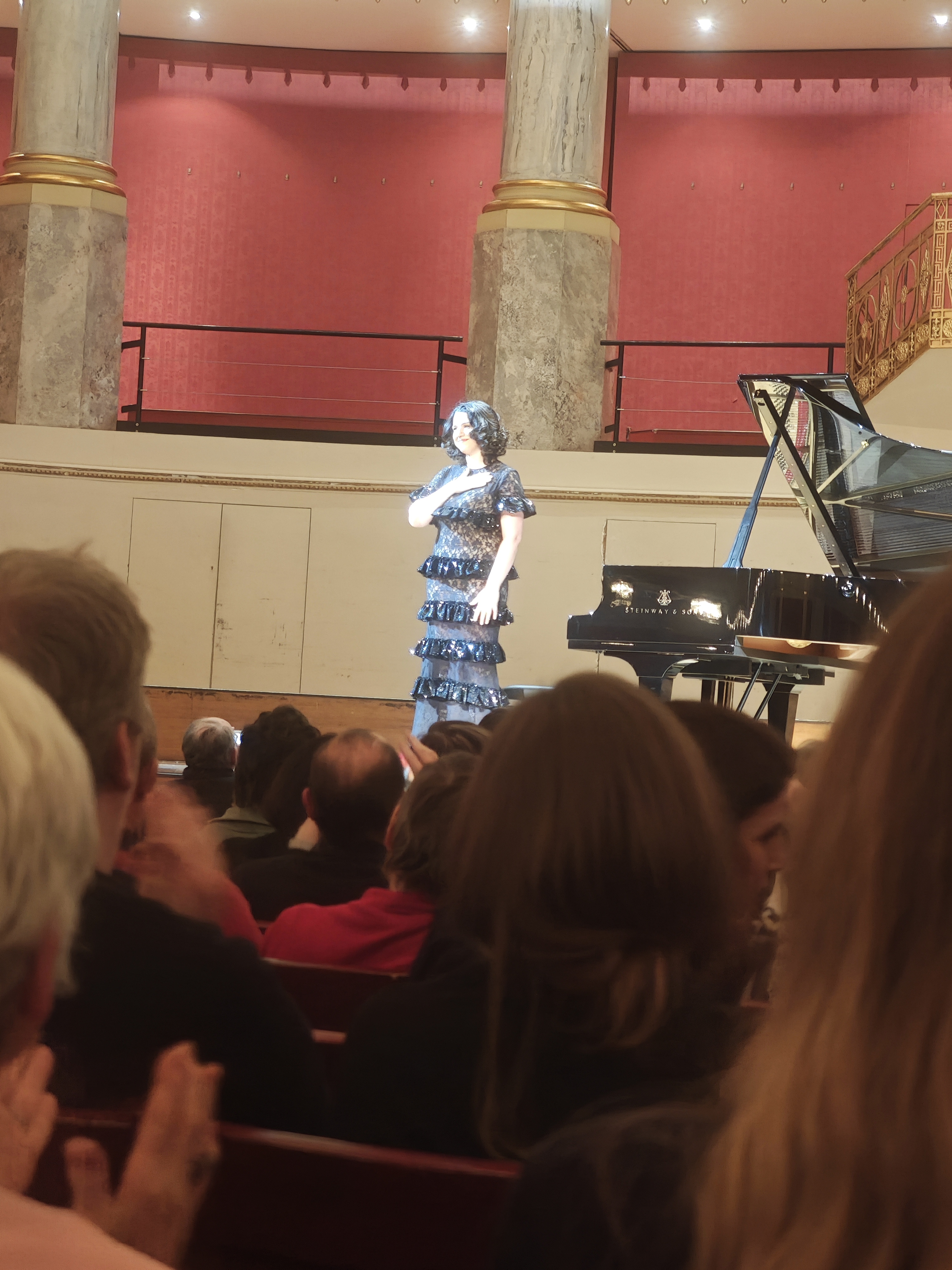
Although I was, again, distracted (silly me) by counting how many people were coughing in the most silent and beautiful moments (I believe it’s a very archaic ritual to show that one is also present and awake), although I had the feeling that she was a little rushing through the programme and although I don’t understand anything about classical music, I enjoyed it a lot. Her technical skills are - but who am I to say so? - just unbelievable, her expression is tremendous, her memory is unbelievable. I can not imagine how much work and dedication it needs to achieve such a level of perfection.
There’s no digital trace of this on the internet that I found, but you might enjoy her playing Bach instead.
Salzburger Nachrichten has an interview with her due to this concert.
Trump, again
However, one shouldn’t be too distracted by music.
This is - both from a technical and a content-related perspective - a brilliant view on the first four weeks of Trump administration.
A not so funny version of quite the same story can be read quite frequently - if one reads non German speaking media at all -, for example in this Washington Post article.

Daisy
marvels at the world and its politics and its laws.

© Felix Forgó
Have a wonderful week!
Kind regards
Nikolaus (Forgó)
P.S.: Due to an error, I sent last week’s weekly at 6.00 am already. As this doesn’t make any difference for me (I tend to finish the text on Thursday afternoons) and it might be that some of you want to read this already with an early morning coffee, I will stick to this mistake and will deliver on Friday at 6.00 am from now on - if nobody tells me that I should stay with the old plan.

